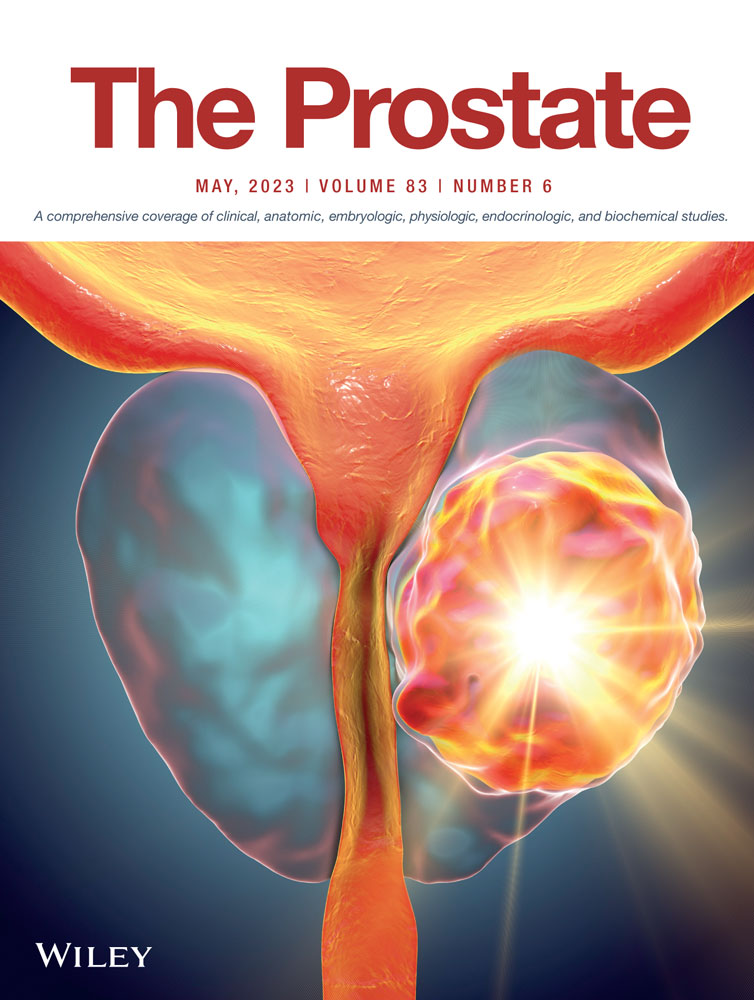Docetaxel versus abiraterone for metastatic hormone-sensitive prostate cancer with focus on efficacy of sequential therapy
Abstract
Purpose
We aimed to assess the oncologic efficacy of combining docetaxel (DOC) versus abiraterone (ABI) with androgen deprivation therapy (ADT) in patients with high-risk metastatic hormone-sensitive prostate cancer (mHSPC), with a focus on the efficacy of sequential therapy, in a real-world clinical practice setting.
Methods
The records of 336 patients who harbored de novo high-risk mHSPC, based on the LATITUDE criteria, and had received ADT with either DOC (n = 109) or ABI (n = 227) were retrospectively analyzed. Overall survival (OS), cancer-specific survival (CSS), progression-free survival (PFS), including time to castration-resistant prostate cancer (CRPC), time to 2nd-line progression (PFS2), and 2nd- and 3rd-line PFS, were compared. We used one-to-two propensity score matching to minimize the confounders. The differential efficacy of 2nd-line therapy based on agents in each arm was evaluated using the unmatched cohort as an additional interest.
Results
After propensity score matching, 86 patients treated with DOC + ADT and 172 with ABI + ADT were available for analyses. The 3-year OS and CSS for DOC versus ABI were 76.2% versus 75.1% (p = 0.8) and 78.2% versus 78.6% (p = 1), respectively. There was no difference in the median PFS2 (49 vs. 43 months, p = 0.39), while the median time to CRPC in patients treated with ABI was significantly longer compared to those treated with DOC (42 vs. 22 months; p = 0.006). The median 2nd-line PFS (14 vs. 4 months, p < 0.001) and 3rd-line PFS (4 vs. 2 months, p = 0.012) were significantly better in the DOC group than in the ABI group. Among the unmatched cohort, after ABI for mHSPC, the median 2nd-line PFS did not differ between the patients treated with DOC and those treated with enzalutamide as 2nd-line therapy (both 3 months, p = 0.8).
Conclusions
ADT with DOC or ABI has comparable oncologic outcomes in terms of OS, CSS, and PFS2 in patients with de novo high-risk mHSPC. Compared to DOC, ABI resulted in longer time to CRPC but worse 2nd and 3rd-line PFS. Further studies are needed to clarify the optimal sequence of therapy in the upfront intensive treatment era.
CONFLICTS OF INTEREST
Takahiro Kimura is a paid consultant/advisor of Astellas, Bayer, Janssen, and Sanofi. Shintaro Narita received honoraria from Janssen Pharmaceutical K. K., Bayer AG. Dr., AstraZeneca K. K., Takeda Pharmaceutical Company Ltd., Sanofi S. A., Astellas Pharma Inc., and grants for research from Novartis Pharmaceuticals. Shingo Hatakeyama received honoraria from Janssen Pharmaceutical K. K. and Pfizer Inc. Department of Advanced Blood Purification Therapy is an endowment department, supported by a grant from NIPRO Corporation. Tomonori Habuchi received honoraria from Janssen Pharmaceutical K. K., Takeda Pharmaceutical Company Ltd., Astellas Pharma Inc., Daiichi Sankyo Company, Ltd., AstraZeneca K. K., Sanofi S. A., and Bayer AG. Chikara Ohyama received honoraria from Astellas Pharma Inc., NIPPON SHINYAKU Company Ltd., AstraZeneca K. K., Janssen Pharmaceutical K. K., Takeda Pharmaceutical Company Ltd., Novartis Pharma K.K., ONO Pharmaceutical Company Ltd., Chugai Pharmaceutical Company Ltd., Sanofi S.A., Bayer AG., Pfizer Inc., Bristol Myers Squibb, Otsuka Pharmaceutical Company Ltd., KISSEI Pharmaceutical Company Ltd., Kyowa Kirin Company Ltd., Daiichi Sankyo Company Ltd., KANEKA Corporation, and Nipro Corporation. Shahrokh F. Shariat received as follows: Honoraria: Astellas, AstraZeneca, BMS, Ferring, Ipsen, Janssen, MSD, Olympus, Pfizer, Roche, Takeda; Consulting or Advisory Role: Astellas, AstraZeneca, BMS, Ferring, Ipsen, Janssen, MSD, Olympus, Pfizer, Pierre Fabre, Roche, Takeda; Speakers Bureau: Astellas, AstraZeneca, Bayer, BMS, Ferring, Ipsen, Janssen, MSD, Olympus, Pfizer, Richard Wolf, Roche, Takeda. The remaining authors declare no conflict of interest.
Open Research
DATA AVAILABILITY STATEMENT
The data that support the findings of this study are available from the corresponding author upon reasonable request.




